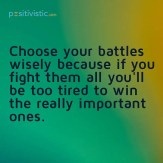If you spend too much time watching the news, you might begin to believe that the world is soon coming to an end. Whether it is regarding the politicians in charge or the faith in the public education, the media, is trying to convince the public that the sky is indeed falling. However, just like the fable, buying into this belief is more likely to result in the dangerous behaviors that bring about the danger.

In the story, Chicken Little is hit by an acorn falling from a tree. She draws the wrong conclusions and rallies others into her erroneous reasoning. As they all seek a solution to the false doom, they become careless, and trust the sly Foxy Loxy, who is the real source of their undoing. There wasn’t any real danger, until they created it for themselves due to unfounded fear. The fox leads them down the wrong path and gains a nice dinner for himself.
The same thing is happening today. A few people have had some negative experiences with public school. WIth an institution this large built to serve all people from all backgrounds, I am not sure why we are surprised by this. Perfection does not exist. However, those people have loudly cried, “The sky is falling!” when it comes to public education. They go to their friends and build a following, a following of people who have simply believed what they are told, rather than seeking information to substantiate the claim for themselves and simply continue to spread the paranoia.
So enter Foxy Loxy. Foxy Loxy sees an opportunity to capitalize on the fear and paranoia of others. Foxy Loxy doesn’t really care about education, be it public or private, but only sees the opportunity to serve his own needs. He says, “you’re right, the sky is falling and I can help you. Come  down this path and we can provide you with school choice vouchers and you will be saved.” Foxy Loxy doesn’t really care about your future, but sees the opportunity to manipulate you and take money from public education, monies that in the past, he has never been able to touch. He doesn’t care if creates soft segregation, leaving segments of the population feeling alienated and disenfranchised. In his mind, if the public education system fails, it will just require everyone to pay for a product that was once free to all. In the end of this fable, the only one who wins is Foxy Loxy.
down this path and we can provide you with school choice vouchers and you will be saved.” Foxy Loxy doesn’t really care about your future, but sees the opportunity to manipulate you and take money from public education, monies that in the past, he has never been able to touch. He doesn’t care if creates soft segregation, leaving segments of the population feeling alienated and disenfranchised. In his mind, if the public education system fails, it will just require everyone to pay for a product that was once free to all. In the end of this fable, the only one who wins is Foxy Loxy.
Public education is not failing. More students than ever before are receiving a high quality education. Graduation rates are on the rise. Public schools are fighting to become producers of students with higher-level thinking, strong communication and collaboration, problem-solving and technology skills to improve our society. All of this is happening despite antiquated accountability systems based on “one-size fits all” standardized testing systems that can’t even begin to measure the depth of these 21st Century Skills.
If we hope to create a better society for our future, we must teach diverse populations to co-exist and value our differences. We must be brave and unite, rather than divide our cultures and run in fear. We must fight for our schools so that they can evolve to be the institutions we need them to be, rather than continue to drain their resources and pretend that “school choice” is available to all. The research doesn’t support the success of school choice. Historically, school choice just enables those who could already afford private school a discount. Those with fewer resources still cannot afford the private school and are left with schools that were already stretched beyond their means with even less.
The Foxy Loxy’s of the world are hard at work to undermine your faith. They create tests with continually changing rules that they finalize AFTER tests are given. They appoint leaders who are experts in undermining rather than advocating for public education. They pass laws to ensure schools cannot hold families accountable for coming to school so that children and be taught, paint schools in a negative light, and they encourage the Chicken Little’s saying, “yes, the sky is falling!”

However, the truth is the sky is not falling. Teachers are better and more equipped than they have ever been before. A good education is still the most proven way to overcome poverty. Public education is the place that we can learn to live and thrive side by side. Can public education improve? Certainly. Just don’t succumb to the paranoia of the Chicken LIttles or be tricked by the self-serving Foxy Loxys of this world. Our brains are wired to see what we believe. My challenge to society is to see the greatness of public schools. If something needs to be improved, get involved to create a better system rather than running in fear, or worse, being a sideline critic with no personal knowledge of the situation. Your neighborhood public school will welcome your collaboration.
Be brave and stand up for public schools. Public education is our best choice to make sure that everyone has the opportunities they deserve and create a better future.
Friends of Texas Public Schools: http://fotps.org/cool/
Stand Up 4 Public Schools: https://www.standup4publicschools.org/
Like this:
Like Loading...






 off-contract. I feel certain that if something urgent had come up, my adrenaline would have kicked back in. What I also realized once my exhaustion started to wane was that maybe, if I did a little more self-care during the year, I might not reach that level physical and mental fatigue.
off-contract. I feel certain that if something urgent had come up, my adrenaline would have kicked back in. What I also realized once my exhaustion started to wane was that maybe, if I did a little more self-care during the year, I might not reach that level physical and mental fatigue.
























